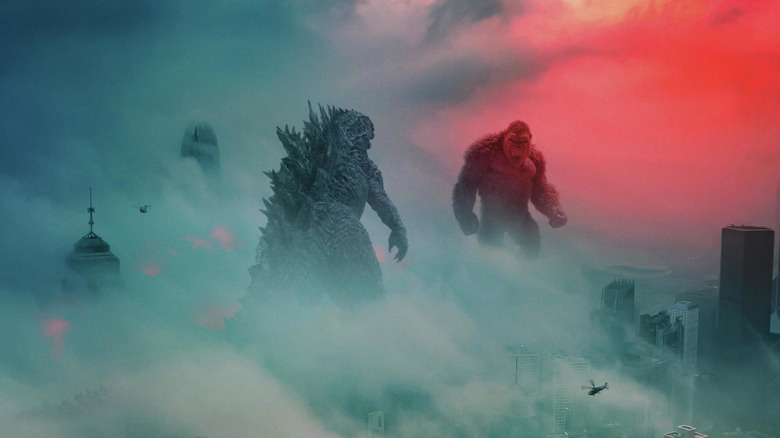It has been a tough few years on the field workplace, to place it as mildly as one can. The pandemic utterly upended the film enterprise as we all know it, with theaters world wide shutting down fully for months on finish. Even after they reopened, the restoration has been a lot slower than anticipated. It definitely did not assist that final yr’s SAG and WGA strikes vastly impacted this yr’s output from Hollywood as nicely. It has been one factor after one other. Amidst all of this, American studios have needed to take care of one massive, financially consequential reality: China can not be relied on to assist goose ticket gross sales for blockbuster movies.
For over a decade earlier than the pandemic hit in 2020, Hollywood studios had been catering to Chinese language audiences, even going as far as to self-censor movies to assist make sure that they might play within the nation. At occasions, that paid off handsomely. Simply take a look at 2018’s “Venom,” which made a staggering $856 million worldwide in 2018 regardless of incomes largely horrible opinions from critics. A whopping $269 million — or greater than 31% of the movie’s whole gross — got here from China. For instance the best way issues are altering although, it is price declaring that 2021’s “Venom: Let There Be Carnage” wasn’t even launched in China. It needed to accept $506.8 million worldwide.
Hollywood blockbusters have suffered a steep drop in ticket gross sales from China, the place native movies now account for 80% of revenues.@tgbuckley and @soheefication on this week’s Screentime.https://t.co/SzrMXSsFq4 pic.twitter.com/pNyDwh1xqk
— Lucas Shaw (@Lucas_Shaw) August 26, 2024
The above chart from Bloomberg reveals that even the flicks which can be being launched in China today aren’t doing almost what they used to do within the nation. The “Apes” franchise is arguably probably the most startling instance. “Battle for the Planet of the Apes” made $490.7 million worldwide in 2017, with $112.2 million of that coming from China. This yr’s “Kingdom of the Planet of the Apes” made $397.3 million globally, however solely earned $29 million of that from China. It is a huge distinction. Be that as it could, it is a new actuality that Hollywood should settle for. That acceptance will convey with it some good and a few dangerous.
Hollywood relied too closely on China earlier than the pandemic
It isn’t arduous to see why Hollywood started chasing Chinese language field workplace {dollars}. China overtook america in ticket gross sales for the primary time in 2015. That was a watershed second that represented a gold rush of types. The issue is that Chinese language censors are very strict, with solely a sure variety of imported movies allowed to play within the nation’s theaters in a given yr. That quantity has solely decreased within the pandemic period, with the nation as a substitute opting to deal with homegrown titles.
This has been efficient in some ways, with motion pictures like “The Battle at Lake Changjin” discovering huge success. The battle propaganda movie earned a staggering $859 million — virtually all of it in China — to turn into the most important film of 2021 globally. The pondering has developed to “Hollywood wants China greater than China wants Hollywood.” On some degree, that is confirmed to be appropriate. Films like “The Batman” bombed within the nation regardless of doing massive enterprise elsewhere all around the world. That stated, American studios had been in peril of changing into over-reliant on China. In some ways, it is higher that this not needs to be the case.
Take a look at “Warcraft,” which was at one time the most important online game film ever. It made simply $47.3 million in North America, a disaster for a movie with a $160 million price range. Nonetheless, it wound up with $439 million worldwide, with a ridiculous $225.5 million take from China straight-up bailing out Legendary on that one. That quantity definitely seems good on paper, and it helps come time to reply to the shareholders. Nonetheless, it is necessary to grasp that solely a lot of that cash makes it again to the studio in the long run.
Even beneath the most effective of circumstances, a studio can anticipate to see roughly half of what’s earned on the field workplace returned to it. Due to worldwide taxes and different charges, China solely finally ends up returning about 25% of all cash made out of ticket gross sales within the nation to the studios. So, within the case of “Warcraft,” we’re about $56 million going to the underside line, give or take. That is certain as heck not nothing, but it surely illustrates why Hollywood was taking part in a barely harmful sport within the first place. Counting on that cash was by no means a fantastic long-term plan.
Hollywood wants to regulate expectations relating to China’s field workplace
In some circumstances, China continues to be a vital a part of the equation. Simply take a look at “Godzilla vs. Kong,” which made $467.8 million worldwide in 2021, together with a whopping $188.7 million from China. That film was important in getting theaters again on their ft after the shutdown, and the financials straight-up do not work with out China. However that is now an exception somewhat than the rule. Studios cannot depend on China to be there when placing a film collectively. There was some extent when budgeting a “Transformers” film north of $200 million made some sense — as a result of Chinese language audiences would flip up at a sure, virtually assured degree. With out that, studios want to regulate expectations and plan accordingly.
I’ve lengthy argued that Hollywood must all however say goodbye to China, opting as a substitute to think about any field workplace from the nation as icing on the cake. Happily, it looks as if that mentality is certainly taking maintain.
“Most, if not all, studios challenge zero income from China now on the green-light course of,” Chris Fenton, creator of “Feeding the Dragon,” a ebook in regards to the Chinese language movie market, defined in that Bloomberg report. “If a movie ultimately makes cash in China, it is now seen as gravy.” IMAX is equally adjusting its technique within the nation, using its screens for homegrown Chinese language movies in addition to Hollywood imports.
Let’s additionally not neglect that it was reported in 2017 that Chinese language theaters had been shortchanging Hollywood, with as a lot as 9 p.c of ticket gross sales in 2016 going unreported. That represents tens of millions in misplaced income (and the shares of that income had been already comparatively small). There was little recourse at the moment as a result of studios wanted China to make various upcoming blockbusters make sense. They had been relying on that cash in lots of circumstances. That not being the case has its downsides, but it surely additionally would possibly result in some rationalization.
Is a scarcity of dependable Chinese language field workplace {dollars} going to harm some motion pictures? Nearly definitely. However Hollywood not having to cater particularly to Chinese language censors, not having to take away sure scenes from edits, and never being a part of that machine, is sort of definitely a very good factor. Ideally, it would result in some precise accountability in terms of Hollywood’s ongoing price range drawback. It additionally would possibly result in some motion pictures not getting the inexperienced gentle. Then once more, ought to these motion pictures be made within the first place if their success hinges on doing enormous numbers in a single nation that may impose enormous restrictions on the content material proven on display? Perhaps not.


